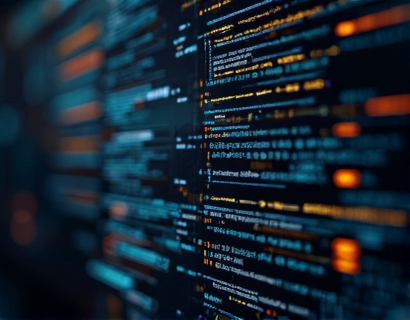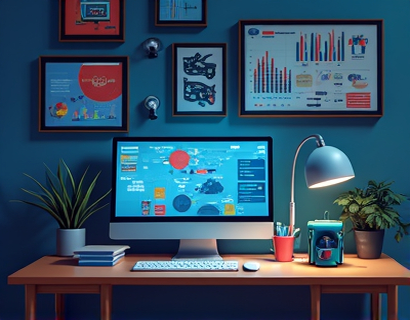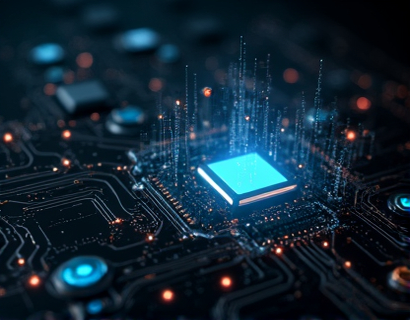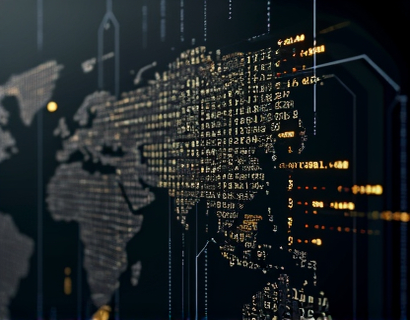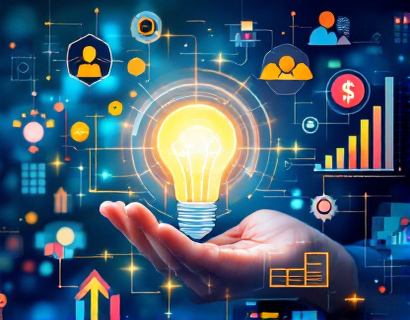Unlock Efficiency and Structure: Harnessing AI for Personal Organization and Productivity
In an era where time is a precious commodity, the quest for efficiency and structure has become more crucial than ever. The integration of Artificial Intelligence (AI) into personal organization tools offers a transformative approach to managing daily tasks, enhancing focus, and streamlining routines. This comprehensive guide delves into the ways AI can be harnessed to unlock personal productivity, providing tailored solutions that adapt to individual needs and lifestyles.
The foundation of any productive life lies in effective organization. Traditional methods such as planners, to-do lists, and calendars have served this purpose well, but they often fall short in adapting to the dynamic nature of modern life. AI-driven tools, however, bring a new dimension to personal organization by offering intelligent, adaptive, and seamless integration into daily activities. These tools leverage machine learning algorithms to understand patterns, predict needs, and automate repetitive tasks, thereby freeing up mental space for more critical and creative endeavors.
Simplifying Task Management
One of the most significant benefits of AI in personal organization is its ability to simplify task management. AI-powered task managers can prioritize tasks based on urgency, importance, and personal preferences. These tools analyze your work habits and suggest the optimal order for completing tasks, ensuring that nothing slips through the cracks. For instance, an AI assistant can automatically create task lists from emails and messages, categorize them, and set reminders, all without manual intervention.
Moreover, AI can integrate with various calendars and scheduling tools to avoid double bookings and ensure that time is used efficiently. By learning your schedule and preferences, these tools can propose the best times for meetings or appointments, taking into account your availability and focus levels. This not only saves time but also reduces stress, allowing you to focus on the task at hand without constant interruptions.
Enhancing Focus and Concentration
Maintaining focus in a world filled with distractions is a significant challenge. AI tools can play a pivotal role in enhancing concentration by creating an optimized work environment. One such feature is the implementation of the Pomodoro Technique, a time management method that breaks work into intervals, traditionally 25 minutes in length, separated by short breaks. AI can automate this process, adjusting the intervals based on your productivity patterns and providing real-time feedback on your focus levels.
Additionally, AI can monitor and filter digital distractions. By analyzing your browsing habits, these tools can block distracting websites or apps during designated work periods, ensuring that your attention remains on high-priority tasks. Some advanced AI systems even use biometric data, such as heart rate and brain activity, to detect when your focus wanes and suggest personalized strategies to regain it, such as short meditation sessions or physical activity.
Streamlining Daily Routines
Daily routines can be a source of both structure and stress. AI can help streamline these routines by predicting and automating repetitive tasks. For example, an AI assistant can learn your morning routine and prepare a personalized schedule, including the best time to wake up, a tailored breakfast plan, and a quick exercise routine. This not only saves time but also ensures that you start your day on a positive note.
AI can also optimize your commute by analyzing traffic patterns and suggesting the fastest routes. It can integrate with public transportation systems to provide real-time updates and alternative plans in case of delays. For those who work from home, AI can manage home automation systems, adjusting lighting, temperature, and even coffee brewing times to create a seamless transition from home to work mode.
Personalized Learning and Development
Continuous learning and skill development are essential for personal and professional growth. AI can tailor learning experiences to individual needs, preferences, and pace. By analyzing your learning history and performance, AI tools can recommend relevant courses, articles, and resources. These recommendations are not just based on popularity but on your specific interests and the skills you aim to develop.
Moreover, AI can provide real-time feedback and assessments, helping you track your progress and identify areas for improvement. Virtual tutors and mentors powered by AI can offer personalized guidance, answering questions and providing explanations in a way that resonates with your learning style. This level of personalized support is particularly beneficial for those with busy schedules who may not have the time for traditional classroom settings.
Health and Well-being Integration
The connection between productivity and well-being is well-documented. AI can play a crucial role in monitoring and enhancing your health and well-being, which in turn boosts your overall productivity. Wearable devices integrated with AI can track various health metrics, such as heart rate, sleep quality, and physical activity. These tools provide insights and recommendations to improve your health, such as suggesting better sleep habits or personalized workout plans.
Mental health is equally important, and AI can offer support through mood tracking and stress management tools. By analyzing your emotional patterns, AI can suggest mindfulness exercises, breathing techniques, or even connect you with mental health professionals if needed. This holistic approach ensures that you are not just productive but also healthy and balanced.
Challenges and Considerations
While the benefits of AI in personal organization and productivity are significant, it is essential to acknowledge potential challenges and considerations. Privacy and data security are paramount concerns when using AI tools. It is crucial to choose reputable platforms that prioritize user data protection and comply with privacy regulations. Transparency in how data is used and the ability to control data sharing settings are key factors to consider.
Another consideration is the potential for over-reliance on AI tools. While these tools can greatly enhance efficiency, they should complement rather than replace human judgment and creativity. Striking a balance between leveraging AI and maintaining personal agency is essential for a fulfilling and productive life.
Conclusion
AI has the potential to revolutionize personal organization and productivity, offering tailored solutions that adapt to individual needs and lifestyles. From simplifying task management and enhancing focus to streamlining daily routines and supporting personal development, AI tools provide a comprehensive approach to achieving a more structured and fulfilling life. By embracing these technologies with a mindful approach, individuals can unlock their full potential and thrive in both personal and professional spheres.





